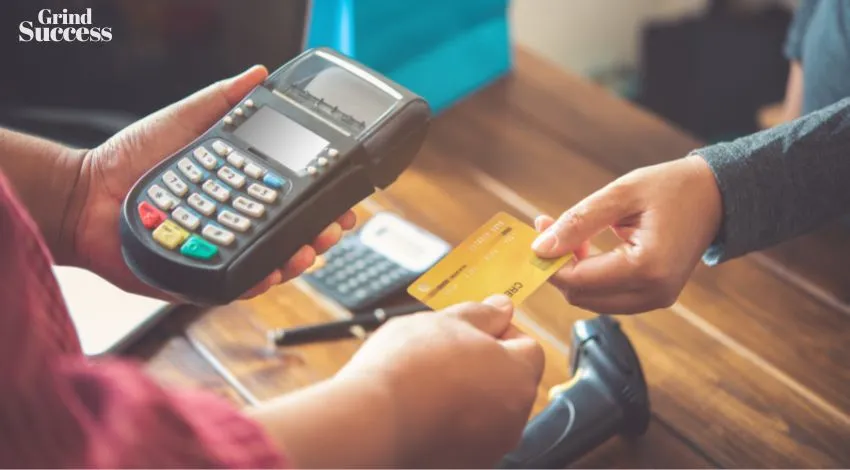What Is a POS System and How Accomplishments It Performs?
A point of sale, or point of purchase, is where you phone clients. When clients take a look online, walk up to your checkout counter, or choose a product from your stand or booth, they go to the point of sale.
Your point-of-sale system is the software and hardware that allow your business to make those sales.

How does a POS system work at a small company?
A POS system enables your business to accept consumer repayments and track sales. It sounds straightforward and sufficient, but the arrangement can operate in different ways, depending on whether you offer online or have a physical storefront.
A point-of-sale system was used to refer to a shop’s sales register. Today, modern POS systems are entirely digital, suggesting you can look into a customer anywhere.
All you require is a POS application as well as an internet-enabled device, such as a tablet or phone.
So what does a POS system do? Typically, it works similarly to this:
When do you require a POS system?
If you wish to approve credit scores and debit card repayments and have a streamlined system for tracking sales, buying a POS constructed for small companies is a good idea. Also, really small companies gain from a good POS system.
You need a strong system for videotaping each sale online to understand what you’re marketing precisely.
Primarily, the more information you have regarding your company, the better you can make informed choices.
And also, having a small business POS system aids your organization to show up even more genuine, which is specifically vital if you’re beginning.
Crucial factors to think about when choosing a POS system
Which types of software and hardware does a POS system normally include?
Every POS system uses POS software applications. However, not all organizations need POS hardware.
If you have an online shop, all your sales are on your website, so you don’t require POS equipment to aid you in approving settlements. However, you might need a register and a bank card visitor if you have a coffee shop.
If you run a food truck, a phone or tablet computer could be all you require to process orders.
Here’s a run-through of the usual kinds of POS hardware and software that can help you determine your POS system’s overall price. Remember that what you require depends on your company.
Typical types of POS equipment
POS hardware enables you to approve payments. If you’re obtaining a new POS system, you must ensure it approves all settlement forms, including cash, credit cards (especially chip cards), and mobile settlements.
If it makes sense for your service, your POS system should likewise print invoices, shop cash in cash drawers, and scan UPCs.
This checklist of hardware can give you a place to start as you review your POS configuration options.
Common POS software program features
POS software is like your command center. At a standard degree, it permits you to locate items in your collection and phone sales.
More durable point-of-sale remedies include user devices such as sales reporting, customer engagement software applications, supply administration, and more. POS systems likewise care for transmitting funds to your savings account after each sale.
Some POS solutions, such as Square, include the features listed below. Other systems may require outdoor software to obtain your required functions. Find out more about how Square contrasts with other POS systems.
Payment handling
Payment handling is among the core features of a POS system. Each time a consumer acquires an item, your POS system refines the deal.
There are some various payment types a POS system may approve:
Stock management
The Supply administration software program allows you to keep tabs on all your products. Some automated stock software applications can get in touch with your sales information and also let you understand when a thing is running low.
POS reports
POS reports offer you a peek into how much you’re offering and also making. You can sell even more with clear records and make better business choices.
Employee management
Team administration software lets you know when your employees are functioning and how they’re executing.
Your group can likewise utilize it to appear as well as out, and some software applications can grant permissions so workers can obtain access to certain tasks.
Customer relationship monitoring (CRM)
A CRM device connected to the POS software application lets you see what your clients acquired and when they bought it. This knowledge aids you in customizing your communications, marketing, and customer support.
Invoices
Invoices simplify handling refunds because the digital proof is attached to the purchased item. They can likewise make your organization look more polished.
Tipping assistance
For restaurants and solution specialists, pointers can be a big part of earning money. POS remedies that permit consumers to add a digital idea during the checkout procedure make it more likely that they’ll tip.
Since you better understand POS systems, you prepare to discover the right POS option for your company, whatever or where you market.
Author bio
Dhruv is a content marketing professional, a start-up incubator, and a market research specialist at TECHIMPLY. He writes extensively on areas such as CRM software and Technology.
He helps small businesses to identify the best software fit for their needs by conducting the secondary research.
It covers and provides insights into emerging technology trends in different industries, and his work has been published in Emerald Insights. He enjoys local cuisines and practicing yoga.
